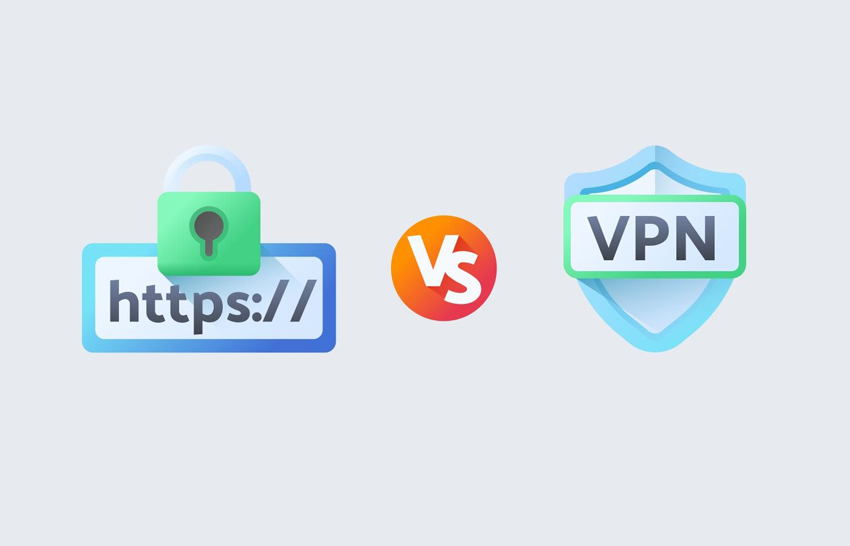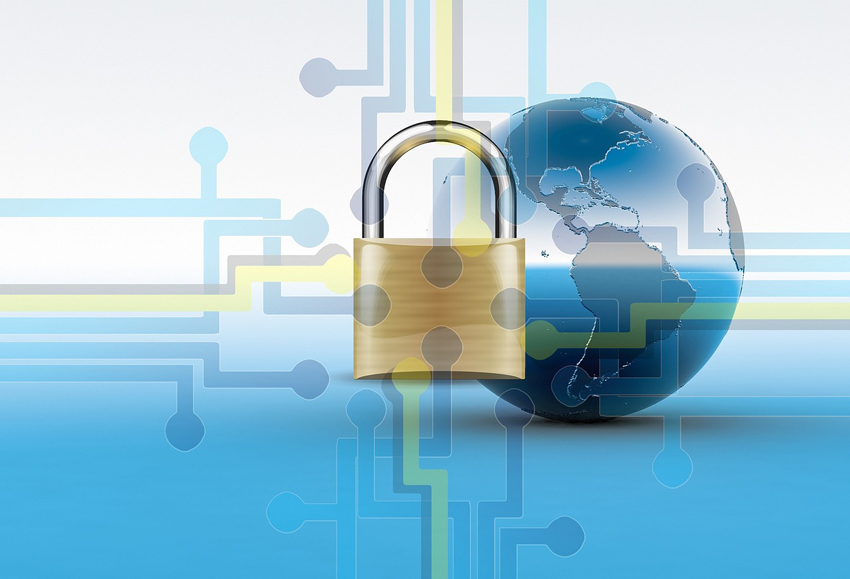VPN protects your HTTP traffic
HTTPS is a secure communication protocol that supports TLS / SSL encryption. However, despite all its usefulness, there are still some cases when it is worth using a VPN along with HTTPS. Let’s see why both VPN and HTTPS are needed at the same time.

Unfortunately, not all sites use HTTPS. To get an HTTPS connection, a webmaster needs to apply for a certificate and post it on their website. And some sites don’t need HTTPS because they don’t handle sensitive information.
Using a VPN provides more protection than just HTTP. When your computer sends data from the VPN, it does so through a secure tunnel. For example, if you use public Wi-Fi and turn on VPN, no one will be able to see what you are sending or where. And your provider will remain in the dark as to what you are doing. And if someone tries to track your actions, the trail will disappear on the VPN servers.
2. VPN counts all your connections
HTTPS only works if you access an HTTPS-enabled site through a browser. Any other applications, such as instant messengers, may not use encryption.
This does not necessarily mean an unencrypted connection. For example, WhatsApp uses end-to-end encryption to protect your messages. However, if you are unsure if the application is using encryption for communication, it is best to enable VPN to protect your data.
3. VPN protects you if you cannot use DNS over HTTPS
HTTPS is great for securing your traffic, but there is one drawback. When you enter a URL into your browser’s address bar, it must go to the DNS server to “translate” your URL into an IP address. And usually this DNS request is not encrypted.
This means that someone on your network can monitor these DNS requests. And given that ISPs usually provide a DNS server, they can see all of your views.

You can solve this problem using DNS over HTTPS (DoH). This protocol prevents the interception and manipulation of DNS data by means of a broker attack. It not only encrypts your DNS requests, but also sends them to a server that is not owned by your ISP. This means that you completely remove your provider from the chain.
However, if you are unsure if your browser supports DNS over HTTPS, or if you are using a device that does not yet support it, you can use a VPN instead.
4. VPN hides your IP address
When you visit a website, the browser tells it your IP address. If you want to keep your location a secret, then it’s better to use a VPN.
When you use a VPN, you are routing all traffic through private servers. The VPN service then forwards the traffic to the site. This is similar to sending a letter to an intermediary who forwards it to another recipient. Thus, it handles all incoming and outgoing mail without revealing your address. When you use a VPN, sites cannot know who you are or where you are from: they will see the IP address and location of the VPN server, but not yours.
5. VPN will help you avoid blocking by region
With a VPN, you can bypass any regional restrictions on the Internet. Want to watch a video online, but the copyright holder has blocked it in your country? Use a VPN server in the country of your site. You can usually choose from a whole library of servers in different countries. HTTPS cannot do this. The protocol encrypts your traffic, but does not mask the country you are in.
So if you want to strengthen your internet security, use a VPN along with HTTPS. Where HTTPS doesn’t work, a VPN can fix the problem and keep you safe online.
